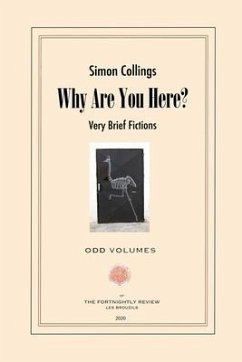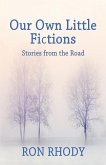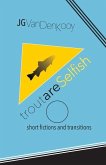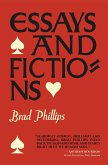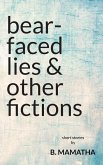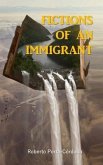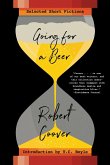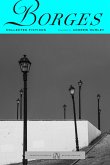The prose poem, as Jeremy Noel-Tod has observed, very often 'makes its home among other forms and genres... such as the anecdote, the aphorism, the sketch, the dialogue, the essay, the fairy tale, the fragment, the joke, the myth or the short story.' And you could also add letters, diary entries, accounts of dreams. The texts in this collection of very short fictions inhabit that edgy, unstable space, and are hard to pin down. They may be dream-like or humorous. Some of these fictions deliberately mirror each other, while others are linked by imagery or thematic content. Some form series, identifiable by their titles, and others could be extracts from the constantly evolving, virtual novel described in the very last piece, 'Medusa'.They are all jewel-like and certain to delight readers who enjoy the unpredictable pleasures of prose poems and very-very short stories. Simon Collings lives in Oxford UK and is a contributing editor of The Fortnightly Review, where he writes film commentary and where some of these fictions have previously appeared.Mark Russell, Litter Magazine: "In Collings's work, life is altered and alterable...the reader is never quite sure where to place themselves, what they are looking at, what they are hearing. A little girl dressed as a fish throws beer cans into a river ('Wildlife Hot Spot'); a dyspeptic Erik Satie writes a cantankerous letter from beyond the grave claiming to be neither dyspeptic nor cantankerous ('Delivered By Hand'); a homeless man sleeping by the Seine is mistaken for an 'Objet D'Art'.Woolf once said the short story must be inconclusive if it is to be honest, to provoke questions rather than to tie up its loose ends. The 'very brief fictions' of Simon Collings's 'Why Are You Here?' do just that, with a canny wit and an admirable deftness of touch. " "There is plenty of comedy in these stories, and in fact, the comical elements are often the most disturbing. They come into play particularly when dealing with the absurdity of contemporary life and the infantilisation of culture. In 'The Wedding', the ceremony is held on a bouncy castle, and "One of the highlights was Julia's mother falling over during the exchange of vows". Another story gives us a childhood idyll, in which the narrator watched each year the spawning of fresh-water fish, turned into a "wildlife hotspot" complete with children's fish-costumes..." - Alan Baker, Tears in the Fence.

